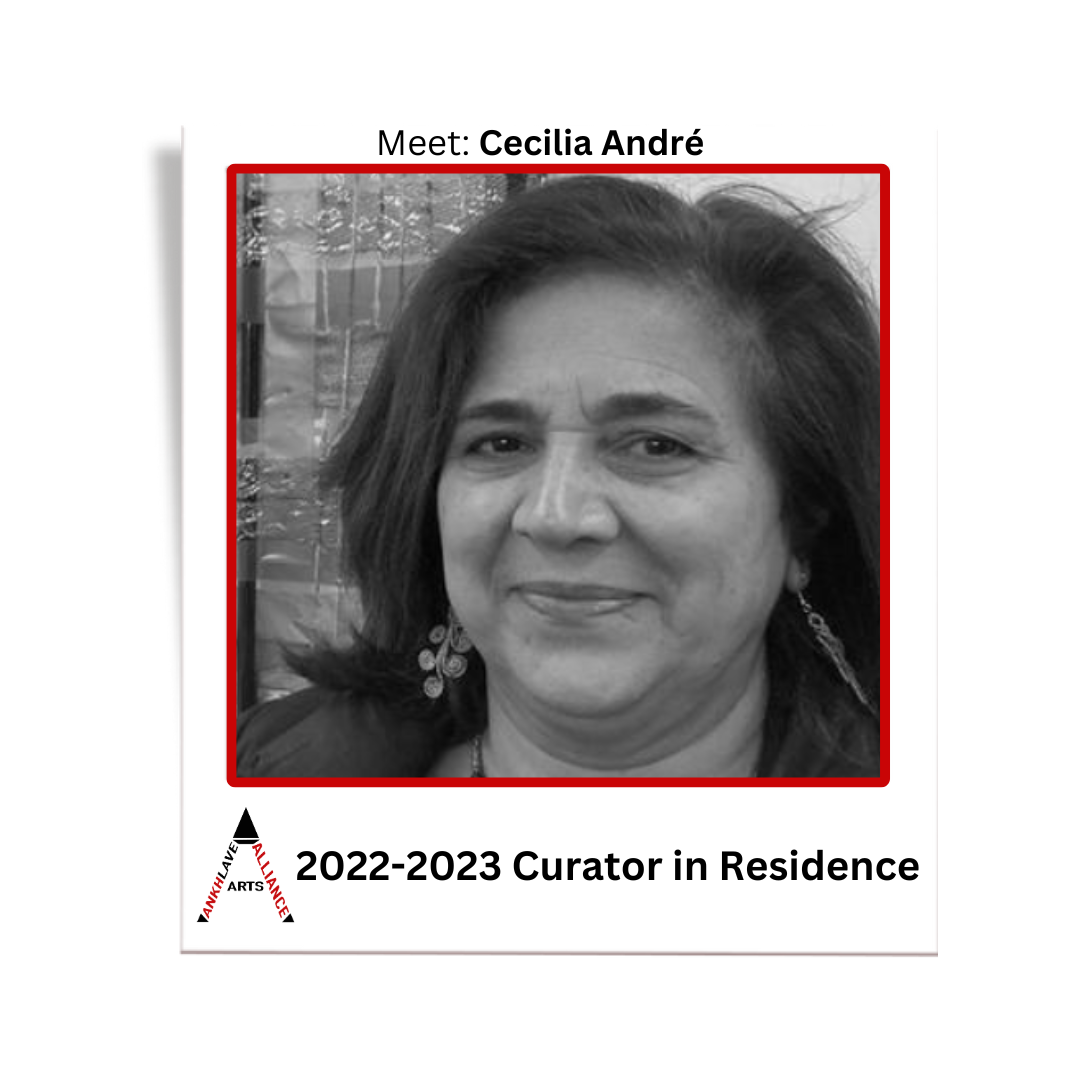Cecilia André is a painter descending from a family of Lebanese immigrants to Brazil, she holds a BFA and a BAE fom Amando Álvares Penteado Foundation. In 1991 she moved to New York where she studied in art programs of the New York Studio School, Pratt Institute and School of Visual Arts. With an extensive background in art education, André has taught arts in Brazil and in the U.S. She sustains a long-time studio teaching practice with innovative methods in schools, her studio, in gallery tours and online.
Selected for the 2020-2021 AnkhLave Arts Alliance Fellowship, Cecilia was one of six female women of color to receive a Queens Council of Arts grant for an outdoor installation at the Queens Botanical Garden – on view during the summer of 2020. In 2021, AnkhLave fellows came together again, displaying new explorations in conversation with the original public works at the Garden’s gallery. In the same year she was also awarded the NY Artists Equity Curatorial Residency. In the 2021 Fall, Cecilia curated the two-part show “Scale Within the Artist’s Practice” by invitation of the New York Artists Circle. In 2022 Cecilia became an AnkhLave curator and has since selected artists for the fellowships and curated for Queens and Brooklyn Botanic Gardens. This year the artists were selected for a five month residency and Art shows in Governors Island and Harlem community gardens.
Cecilia had recent solo shows exhibits at the Materials For The Arts Gallery, where she previously did a four month residency and at Equity Gallery with the outdoor installation “Complementary Greens”. She will be showing her outdoor color transparency installations in Harlem and Ridgewood gardens during the summer of 2024 and FIT gallery in the show “Picturing Light” in the Fall of 2024.
In 2024, Cecilia served as Lead Curator where she curated the first AnkhLave Biennial and mentored that year’s Curator in Residence, Christine Sloan Stoddard to present the 6th Annual AnkhLave Garden Project Exhibition, “Healing Hideaway” at The Artist Gardener (TAG) Garden in Harlem.

